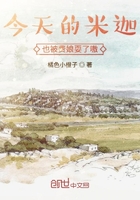March 27th.--It is a dull gray morning, with a dewy feeling in the air; fresh, but not windy; cool, but not cold;--the very day for a person newly arrived from the heat, the glare, the noise, and the fever of London, to plunge into the remotest labyrinths of the country, and regain the repose of mind, the calmness of heart, which has been lost in that great Babel. I must go violeting--it is a necessity--and I must go alone: the sound of a voice, even my Lizzy's, the touch of Mayflower's head, even the bounding of her elastic foot, would disturb the serenity of feeling which I am trying to recover. I shall go quite alone, with my little basket, twisted like a bee-hive, which I love so well, because SHE gave it to me, and kept sacred to violets and to those whom I love; and I shall get out of the high-road the moment I can. I would not meet any one just now, even of those whom I best like to meet.
Ha!--Is not that group--a gentleman on a blood-horse, a lady keeping pace with him so gracefully and easily--see how prettily her veil waves in the wind created by her own rapid motion!--and that gay, gallant boy, on the gallant white Arabian, curveting at their side, but ready to spring before them every instant--is not that chivalrous-looking party Mr. and Mrs. M. and dear R? No! the servant is in a different livery. It is some of the ducal family, and one of their young Etonians. I may go on. I shall meet no one now; for I have fairly left the road, and am crossing the lea by one of those wandering paths, amidst the gorse, and the heath, and the low broom, which the sheep and lambs have made--a path turfy, elastic, thymy, and sweet, even at this season.
We have the good fortune to live in an unenclosed parish, and may thank the wise obstinacy of two or three sturdy farmers, and the lucky unpopularity of a ranting madcap lord of the manor, for preserving the delicious green patches, the islets of wilderness amidst cultivation, which form, perhaps, the peculiar beauty of English scenery. The common that I am passing now--the lea, as it is called--is one of the loveliest of these favoured spots. It is a little sheltered scene, retiring, as it were, from the village; sunk amidst higher lands, hills would be almost too grand a word; edged on one side by one gay high-road, and intersected by another; and surrounded by a most picturesque confusion of meadows, cottages, farms, and orchards; with a great pond in one corner, unusually bright and clear, giving a delightful cheerfulness and daylight to the picture. The swallows haunt that pond; so do the children.
There is a merry group round it now; I have seldom seen it without one. Children love water, clear, bright, sparkling water; it excites and feeds their curiosity; it is motion and life.
The path that I am treading leads to a less lively spot, to that large heavy building on one side of the common, whose solid wings, jutting out far beyond the main body, occupy three sides of a square, and give a cold, shadowy look to the court. On one side is a gloomy garden, with an old man digging in it, laid out in straight dark beds of vegetables, potatoes, cabbages, onions, beans; all earthy and mouldy as a newly-dug grave. Not a flower or flowering shrub! Not a rose-tree or currant-bush! Nothing but for sober, melancholy use. Oh, different from the long irregular slips of the cottage-gardens, with their gay bunches of polyanthuses and crocuses, their wallflowers sending sweet odours through the narrow casement, and their gooseberry-trees bursting into a brilliancy of leaf, whose vivid greenness has the effect of a blossom on the eye!















